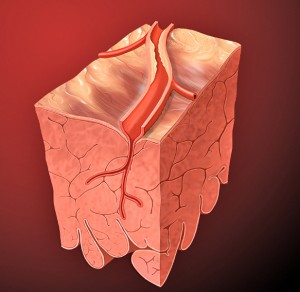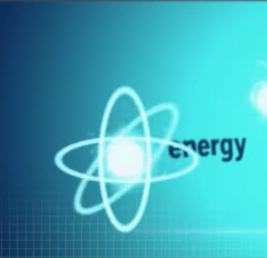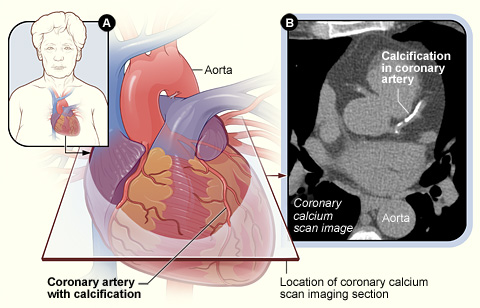There are different ways of taking Magnesium (Mg) supplements. It would be preferable to gain all the Mg we need from our food but with modern agriculture, this is not easy. With the incidence of pushing Calcium (Ca) and Ca fortification in many foods, it is very difficult to get a good balance of Ca and Mg in our diet. Ca is much more
gain all the Mg we need from our food but with modern agriculture, this is not easy. With the incidence of pushing Calcium (Ca) and Ca fortification in many foods, it is very difficult to get a good balance of Ca and Mg in our diet. Ca is much more  prevalent to the extent that it can be detrimental to our health. If too much is in our bodies without a balanced amount of Mg, Ca can migrate to parts of our body where it doesn’t belong, causing all kinds of problems. That being the case, Mg must be kept to a level where Ca can be controlled and ATP (Adenosine Triphosphate) conversion, the
prevalent to the extent that it can be detrimental to our health. If too much is in our bodies without a balanced amount of Mg, Ca can migrate to parts of our body where it doesn’t belong, causing all kinds of problems. That being the case, Mg must be kept to a level where Ca can be controlled and ATP (Adenosine Triphosphate) conversion, the ‘energy currency’ inside our mitochondria which keep us moving, can be produced efficiently. Out of all the problems that can be caused from a deficiency of Mg, the Ca:Mg balance must be the most important. It is this balance within our cardiovascular system and blood vessels that keeps a healthy heart and clear arteries. Ca can be a loose cannon if Mg is not around to keep it under control. Continue reading Best Magnesium Supplements To Take
‘energy currency’ inside our mitochondria which keep us moving, can be produced efficiently. Out of all the problems that can be caused from a deficiency of Mg, the Ca:Mg balance must be the most important. It is this balance within our cardiovascular system and blood vessels that keeps a healthy heart and clear arteries. Ca can be a loose cannon if Mg is not around to keep it under control. Continue reading Best Magnesium Supplements To Take
Tag Archives: Ca:Mg Balance
How To Keep Your Heart Healthy – Part 2
Part 2
Carrying on from Part 1 on ‘how to keep your heart healthy’ we will go through the whole process of how cardiovascular disease can happen to a seemingly healthy person.
 Stress is the start
Stress is the start
We know that stress is the biggest depleter of magnesium. All kinds of stress, be it physical, mental, heat, cold, bereavement, divorce, disease, toothache, workouts, marathons, kids, work, money. You name it, we get stressed from it. It cannot be avoided and we have to live with it. We go from day to day, not realising the kind of stress we are under. We don’t even know we’re stressed because it’s part of everyday life. Continue reading How To Keep Your Heart Healthy – Part 2
How To Keep Your Heart Healthy
Part 1
There is a plethera of much overlooked and ignored evidence about how and why we get cardiovascular diseases. How to keep your heart healthy is a post giving details of this evidence and how you can apply it and keep your heart in good fettle throughout the whole of your life. But first some facts:
The Biggest Killer

Patrick J. Lynch
According to the World Health Organisation (WHO), cardiovascular diseases killed 17.5 million people in 2012, that’s 3 of every 10 deaths. Of these, 7.4 million people died of ischaemic heart disease and 6.7 million from stroke.
Ischaemic heart disease, stroke, lower respiratory infections and chronic obstructive lung disease have remained the top major killers during the past decade. What’s worse is that since the year 2000, deaths have risen, not fallen. Cardiovascular diseases alone killed 2.6 million more people in 2012 than in the year 2000. So much for the super drugs that are supposed to keep the epidemic of cardiovascular disease under control. Continue reading How To Keep Your Heart Healthy
Can Stress Cause Heart Disease? Part 3
Part 3
This is the last part of “Can stress cause heart disease?” and we will cover how our energy is produced and why electrolyte imbalance compromises that production. This imbalance then causing a general cardiovascular deterioration. Click if you missed Part 1 and Part 2
 How we produce energy
How we produce energy
Firstly I want to go through, as simply and succinctly as possible, how our bodies produce energy. I’ve tried to avoid you ‘glazing over’ as I’ve been guilty of being too technical according to some comments. You can skip the explanation if you want to. Suffice to say, Mg is vital for producing and storing energy. Without it, energy production will stop.
Our bodies have around 37.2 trillion cells according to Dr Eva Bianconi and colleagues from the University of Bologna, Italy.¹ This cell count was estimated by counting the amount of cells in each part of an average sized body being: a 30 year old male, 70kg in weight, 1.7m in height and 1.85m² body surface. They had to account for bone cells, fat tissue, articular cartilages, the bilary system, blood, vessels, skin, organs etc.. and then add it all up, quite a feat! This, though, is probably the best estimate to date. Continue reading Can Stress Cause Heart Disease? Part 3
What is Calcification?
Part 2
This is Part 2 of What is calcification? If you missed Part 1, you can read it here.
To calcify or not to calcify, that is the question
The Calcium (Ca) that is in your bones and teeth is mineralised ie. calcified but the Ca in your soft tissues, muscles, organs etc., should be in a dissolved ionic form. With enough Magnesium (Mg), Ca will be controlled and shepherded into its appropriate places within the body. Mineralised for the bones and teeth and ionised for its vital functions in the soft tissues in particular in cell physiology and cellular processes.
What happens when Ca is calcified instead of ionised?

Take a look at this heart scan. This is known as a coronary calcium scan. It is an Xray which creates a detailed picture of the heart and is used to predict your future risk of heart disease.
This image proves that we already have the capacity to find out if someone has any calcification within their heart or arteries. Calcifications are an early sign of coronary heart disease (CHD) and if this was your heart, what would you be doing about it? This is also proof that this patient has a Mg deficiency because if he/she hadn’t, the heart would not be exhibiting calcifications. I wonder where else in this persons body calcification has set in. Perhaps the kidneys, the gall bladder, the carotid arteries, the bladder, the breasts, the brain? Continue reading What is Calcification?